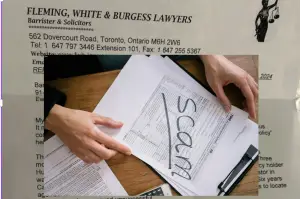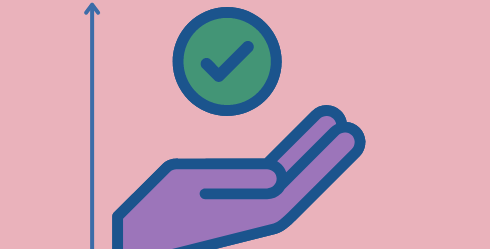Have you received a letter via mail from Fleming, White & Burgess Lawyers? Does it say you’re a beneficiary of an unclaimed life insurance policy held by their deceased client? Beware, it’s a scam!
More than five hundred people have received the mail which says they’re a beneficiary of $10,000,000 insurance life policy. 10% to charity and other 90% to split with lawyers. Here’s a breakdown of how the scam works, red flags that indicate it is a scam, and how to stay protected;

Warning Signs that reveal the Beneficiary Life Insurance Letter is a Scam
Flagged as Scam by Cloudfare
The website mentioned in the letter ‘fwb-lawyers.com’ is currently out of service. A visit to the link shows a ‘Sorry you’ve been blocked’ notification from Cloudfare. This is because lots of people have reported the website as fraudulent.
Recently Launched Website
Who.is (a domain checker tool) reveals fwb-lawyers.com was registered on 21st June 2024. This is contrary to what is stated on the letter. If there’s indeed a client who died six years ago then it means the law firm has been operating for nearly a decade. Why then is the website a recently registered one?
Unavailable Telephone Number
The telephone number +1 437 830 0121 is currently out of service. Why provide a telephone number that isn’t functioning? The goal seem to be to direct people to contact them via email; [email protected] and [email protected].
Inconsistent Details
Fleming White & Burgess actually exist in the given address ‘562 Dovercourt Road Toronto, ON M6H 2W6’. But they are a estate planing law firm and can be reached via [email protected]. The scammers behind the inheritance letter had impersonated the law firm’s name and even one of the listed individuals; Ian C. White
How The Fleming, White & Burgess Lawyers Scam Inheritance Letter Work
The insurance letter from Fleming, White & Burgess Lawyers is an advance fee fraud. When the scammers sends out the letter, they request that you contact them to claim the inheritance. When you do so, you’d be required to send a small amount of money to cover an administrative fee. It’s usually $20, $40, $50 or another reasonable amount. This is where the scam comes in.
Once you send the money, the scammer will tell you to provide your personal information and bank details, so they can wire the inheritance to your bank account. If you do so, your identity and other details will be stolen.
On the other hand, you’ll be told to pay a series of fees, charges or taxes to help release or transfer the money out of the country to your bank. The fees may initially be for small amounts but you will be asked to make further larger payments.
How To Spot and Avoid Inheritance Scams
- The email or letter always have typos and/or grammatical errors. A real law firm maintains professionalism by avoiding these types of errors.
- No information about the law firm or lawyer online. If you can’t find any information about the alleged lawyer online, they’re probably a fraudster.
- The deceased person is someone you’ve never heard of. Why would someone you’ve never heard of leave you money?
- The “lawyer” asks for your personal information. When someone is leaving their estate to beneficiaries, they should have already provided the information that is necessary to receive their inheritance when they pass away.
- Asks for money upfront. When you receive an inheritance, money is deducted from the estate to pay the legal fees. You normally don’t have to pay out-of-pocket to get your inheritance money.
Conclusion
If it sounds too good to be true, it certainly isn’t TRUE. The Fleming White & Burgess Lawyers scam uses inheritance letter scam tactics to rip people off their money. Scammers are impersonating the law firm with the sole aim is to steal from people. If you’ve received this scam letter, here’s what you should do:
- Report it to the FTC – ftc.gov.
- Throw out the letter. Never respond to a scammer.
- Never call back the number.
- Don’t send money no matter how small it is.
See also; True Path Lending Scam Calls
